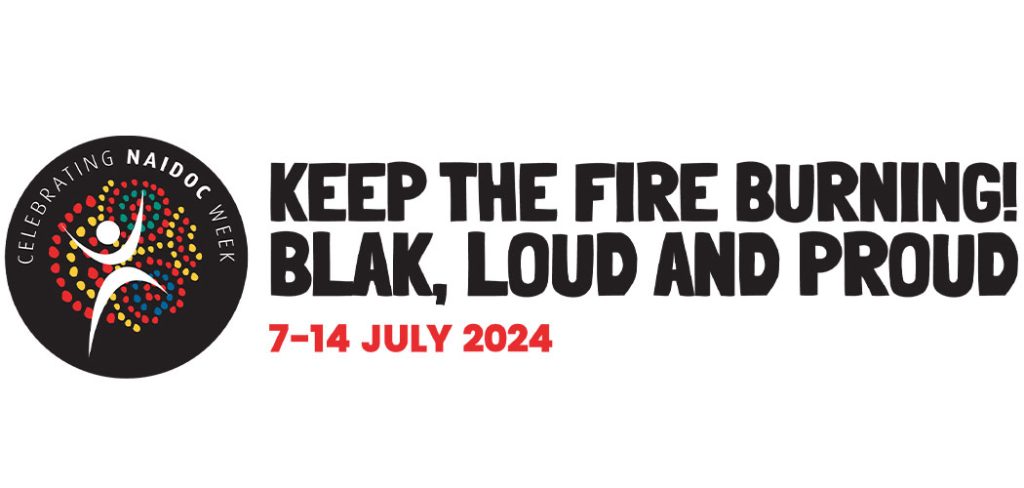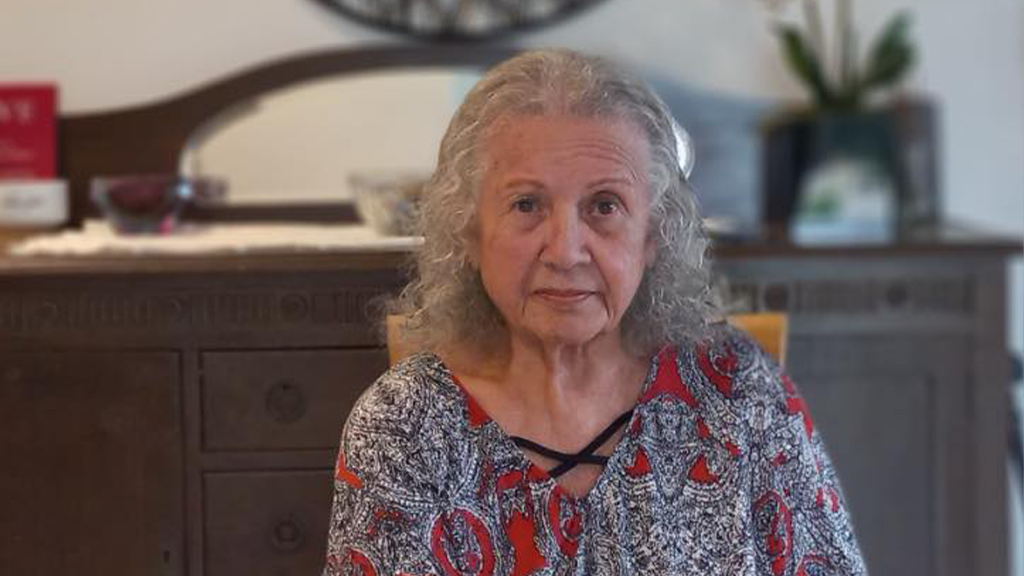Registered nurse and long-time Indigenous rights activist Aunty Dulcie Flower says she’s never considered she has a legacy to leave.
“I’m just me, going about my business,” says the 85-year old who is the recipient of this year’s National NAIDOC Lifetime Achievement Award recipient.
“I am blessed to have the privilege of working with Aboriginal People and also with Torres Strait Islanders to gain justice and equality in this country,” she says on receiving NAIDOC’s top award for 2024.
“To be fighting for Aboriginal and Torres Strait Islander people’s rights has been a lifetime achievement.”
National NAIDOC Week celebrations are held across Australia in the first week of July each year, to celebrate and recognise the history, culture and achievements of Aboriginal and Torres Strait Islander peoples.
The National NAIDOC Lifetime Achievement Award recognises the impact a person makes in their lifetime to create change for all Aboriginal and Torres Strait Islander peoples, in whatever sphere they have worked in.
Aunty Dulcie has been recognised for the indelible mark she has made on Australian history through her unwavering dedication to activism, advocacy, and community development.
A Miri woman of the Meriam Nation from the Torres Strait Islands, Aunty Dulcie was born in Cairns in 1938. Her grandfather was born on Mer (Murray Island) with the family later moving to Erub (Darnley Island) and she has fond memories of growing up as part of the Torres Strait Community in Cairns.
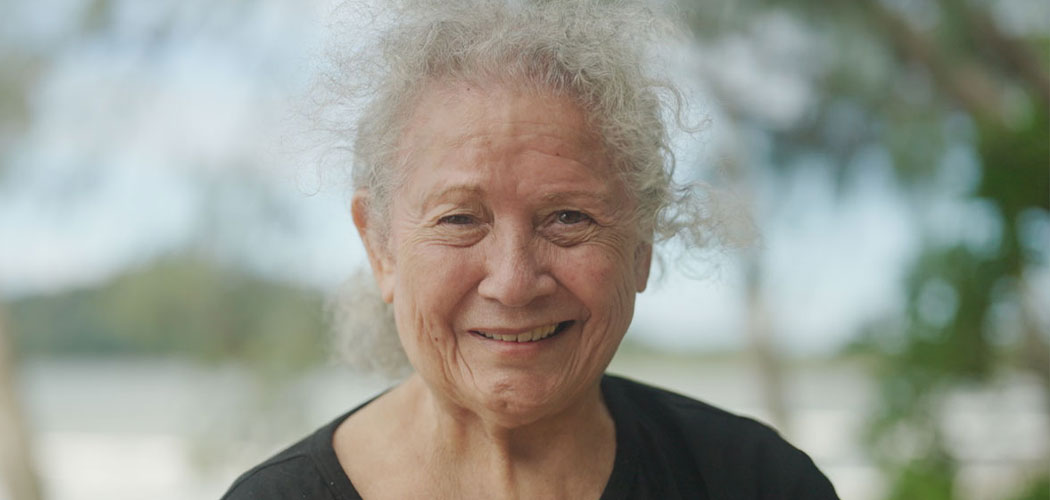
Nursing
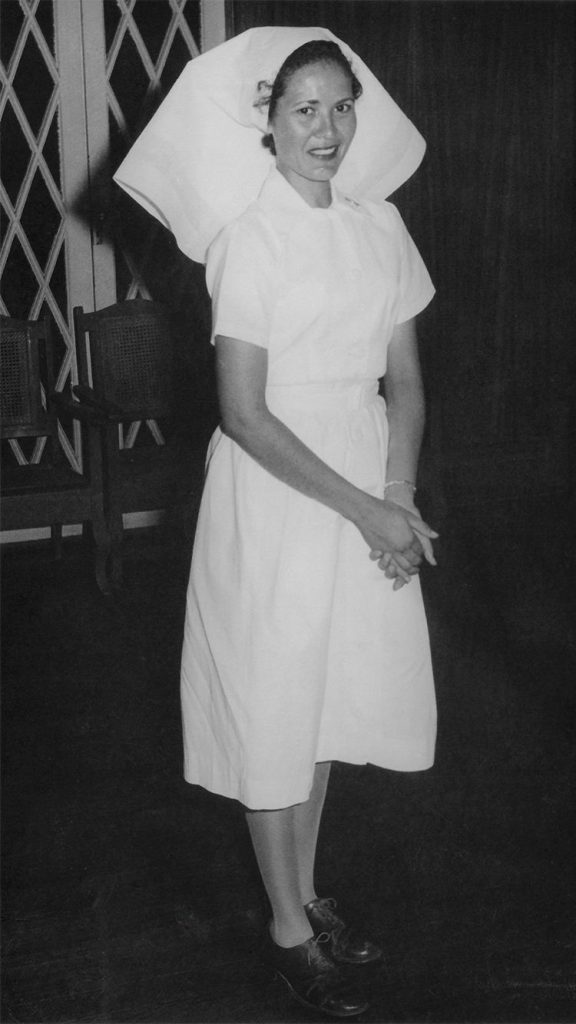
As the oldest in her family, Aunty Dulcie left school early to join the workforce. Whilst employed in her first role at a timber mill, she attended night school, eventually moving into office work and later becoming a registered nurse.
“Our family are all entertainers and singers. I’m the only one who’s ever come into the nursing profession,” she says.
Aunty Dulcie relocated to Sydney to study midwifery and worked for several years as an operating room nurse. t was during this time in the 1950s in Sydney, that she became involved in key Aboriginal activist and political organisations such as the Aboriginal Progressive Association and Federal Council for the Advancement of Aborigines and Torres Strait Islanders.
She was involved in the campaign for constitutional change for Aboriginal people, including the 1967 Referendum, as well as fighting for equal wages, health, land rights and against discrimination.
Aunty Dulcie has been dedicated to the improvement of Aboriginal and Torres Strait Islander peoples’ health and wellbeing. In collaboration with her community, South Sydney Community Aid, and other key activists, she helped to establish the Aboriginal Medical Service Co-operative in Redfern, NSW .
“I was in Sydney where there was a health crisis. People were dying through lack of medical attention. Aboriginal people were coming in from the country areas, so we called a meeting convened by South Sydney Community Aid and the legal service.
And I said, ‘well, what we need is an Aboriginal clinic or service specifically for Aboriginal people’. And everybody agreed that is what was needed.
“South Sydney Community Aid said there’s a building that’s available. It’s in a pretty grotty sort of situation, but it’s $35 a week, which was cheap. We passed the hat around and we got $35. That was our first week’s rent.
“All of Redfern came, and the people came in from other suburbs. The queue stretched way out into the street, down the road. The community, they love us, it’s their clinic.”
Aunty Dulcie has dedicated many years to AMS Redfern, acting as a foundation member and a volunteer, before eventually being elected Director of the AMS Redfern board, a role she continues to hold today.
“I had to learn as much as I possibly could about legislation, about legal issues, mainly about health, about a whole range of other issues, and see the connection between everything.”
Education
Aunty Dulcie has maintained a connection to her roots in healthcare and is an honorary Fellow of the Australian College of Nursing and a foundation member of the Congress of Aboriginal and Torres Strait Island Nurses and Midwives (CATSINaM).
She credits her work with AMS Redfern as having inspired her later work as a community educator and a health worker education program co-ordinator and has been actively involved in the education and training of Indigenous health workers.
“An important aspect has been encouraging non-Aboriginal students and professionals to work with our peoples not for them, in the ongoing struggles to achieve equality in access to the necessities of life, cultural acknowledgement and respect, freedom from racism, optimum standards of housing, health, education, clean water supply, and land ownership.”
She advocates for the provision of cultural safety, such as the Murra Mullangari program offered through CATSINaM. “Cultural safety helps to enable the patient’s voice to be heard in their care. It works by understanding the colonial aspects of health. I wish we’d had that in my day.”
Aunty Dulcie has acted in several high profile roles, including her appointment to the Torres Strait Advisory Board of ATSIC, and connections with the World Health Organization and the United Nations (UN) to discuss global health issues, including as a delegate for the UN’s End of Decade International Women’s Conference in Kenya.
Her contributions have been recognised on a national scale, culminating in her appointment as a Member of the Order of Australia (AM) in 2019 for her significant service to Indigenous communities around the country and her pivotal role in the 1967 Referendum Campaign.
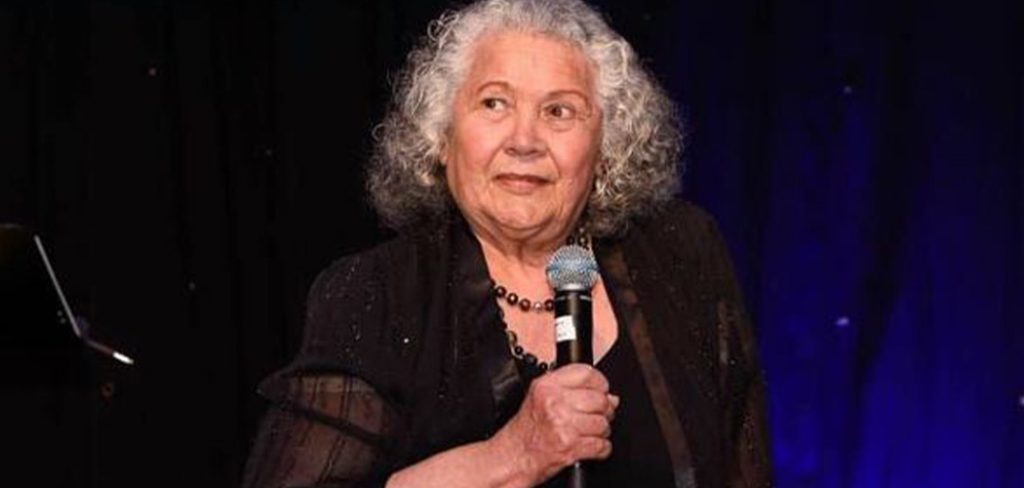
Legacy
Aunty Dulcie’s lifetime of advocacy, leadership, and community empowerment embodied the true spirit of NAIDOC, said Co-Chair of the National NAIDOC Committee, Mr Steven Satour.
“This NAIDOC we celebrate the incredible legacy of Aunty Dulcie Flower, a beacon of strength, wisdom, and cultural resilience. “This award is a testament to her tireless efforts in championing Indigenous rights and fostering reconciliation.”
Through her work, Aunty Dulcie ensured appropriate healthcare for all Aboriginal and Torres Strait peoples, said fellow Co-Chair, Dr Aunty Lynette Riley. “Without her passion and consistent work, many of the changes and medical care we see today, would not have been made available for us all.”
NAIDOC Week 2024
This year’s NAIDOC Week theme, Keep the fire burning! Blak, loud and proud celebrates the unyielding spirit of Indigenous communities and invites all to stand in solidarity, amplifying the voices that have long been silenced.
It invites all Australians to listen, learn, and engage in meaningful dialogue, fostering a society where the wisdom and contributions of Indigenous peoples are fully valued and respected.
Wherever you live, you can take part in NAIDOC Week celebrations. To find out about NAIDOC Week activities in your regions, visit the NAIDOC website
